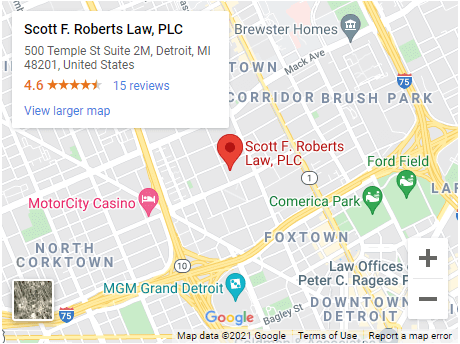A hot topic in the nightly news and the medical marijuana industry alike is the new ballot initiative for the 2018 November election, “Regulate Marijuana Like Alcohol” (RMLA). This initiative, which would essentially legalize the recreational sale and use of marijuana for individuals over the age of 21, is expected to be on the ballot in November, but could be passed beforehand by the Michigan State Legislature.
Currently Michigan’s marijuana laws are governed by the Medical Marihuana Facilities Licensing Act (MMFLA), which dictates who can grow, sell, transport, test, and process marijuana and hemp products in the state of Michigan. The language of the RMLA initiative is substantially less restrictive on who can have a license to grow or sell marijuana compared to MMFLA. The RMLA makes it tougher for municipalities to limit the amount of facilities in their city or township, which has the overall effect of loosening up the State’s licensing laws.
Similar to applying for a liquor license, the new RMLA framework would require an application process in order to operate a marijuana facility. Although the RMLA application will likely not be as intensive as the MMFLA application, medical marijuana attorneys believe that many of the requirements will carry over from the MMFLA into the RMLA.
There are three significant differences between the MMFLA and the RMLA that any medical marijuana business owner should know about. First, under the RMLA there would be an additional license type, called a microbusiness. A microbusiness license allows an applicant to grow, process and sell marijuana. We like to equate this micro-business entity to a micro-brewery, where a business owner can create small batches of craft brew and distribute it to the public.This new license type is ideal for smaller businesses or caregivers looking to transition to the RMLA once the legislation passes and appears to be well-suited for Marijuana delivery services and edibles companies.
The second key difference between MMFLA and the RMLA would be changes to the number of plants each class of growers can have. Under current Michigan marijuana laws, Class A growers can maintain 500 plants, Class B growers can maintain 1000 plants and Class C growers can maintain 1500 plants. Under the RMLA, the initiative allows Class A growers to cultivate 100 plants, Class B growers to have 500 plants, and Class C growers to cultivate up to 2000 plants.
The third difference in the Michigan marijuana laws would be an additional excise tax on micro businesses, in addition to each marijuana dispensary. This tax would be imposed at the rate of 10% of the sales price for marijuana sold.
As with all major ballot initiatives in Michigan, it is possible for the legislature to pass a revised version of the bill or to revise the initiative language in a lame duck session of the legislature. While the RMLA has not been adopted yet, medical marijuana business attorneys are staying updated on the most recent developments in proposed changes to the Act. If you are interested in starting a marijuana business and want more information before the passage of the RMLA, we recommend reaching out to a Michigan Marijuana Attorney now to help give you and your business the best advantage.
Not sure who to call? Give our knowledgeable Cannabis Law Team a try.
Call to schedule your FREE consultation today at (248) 234-4060!




